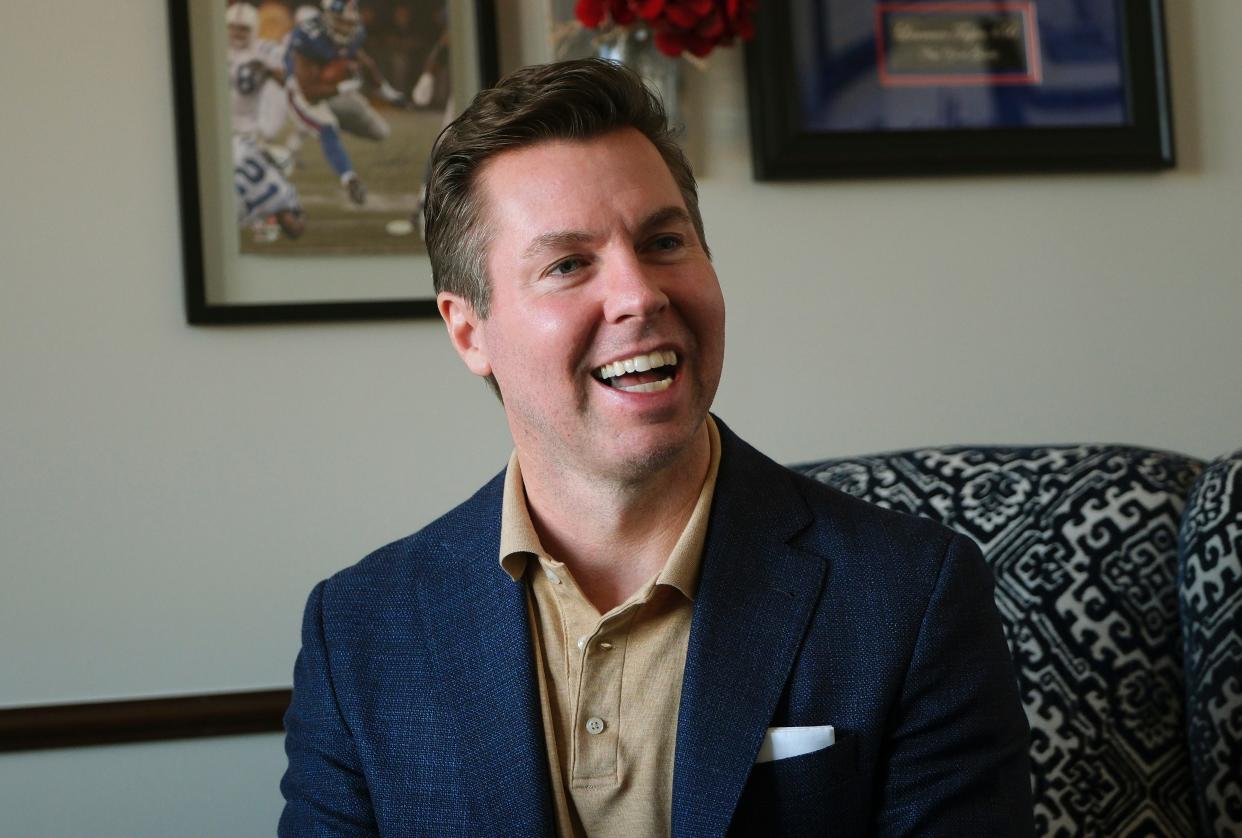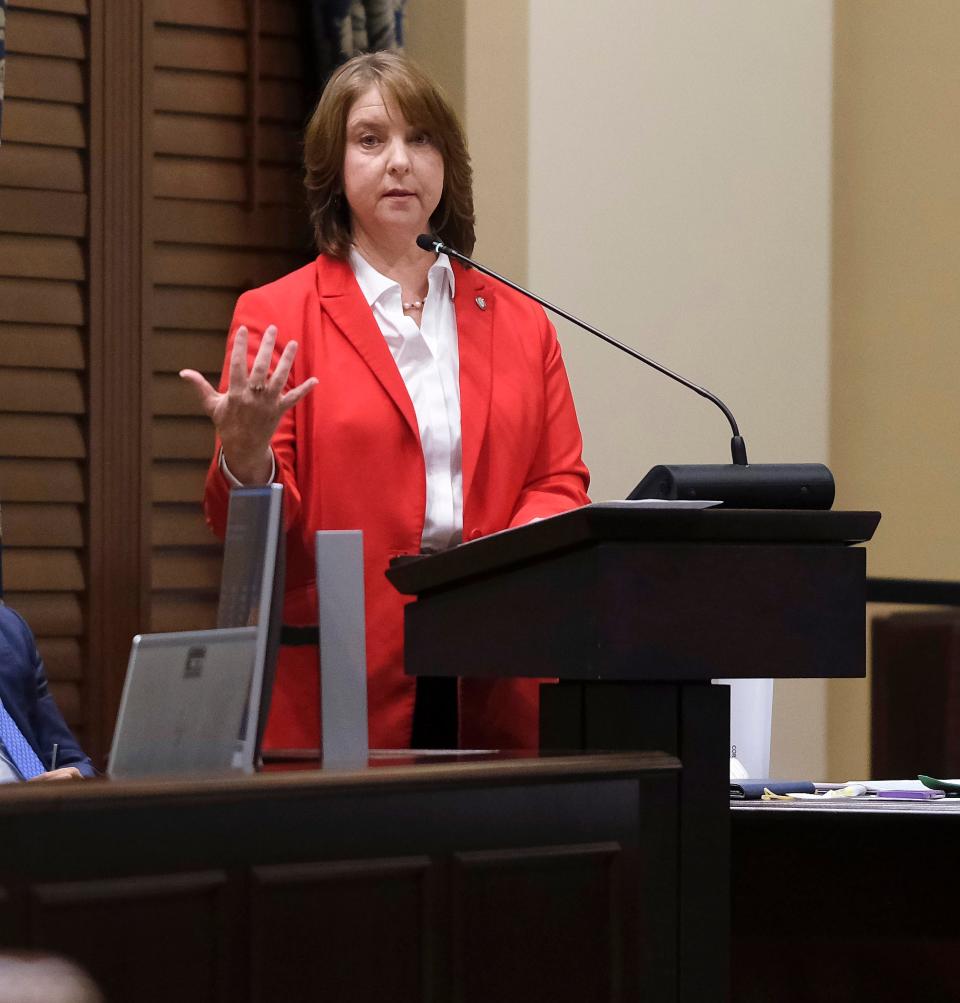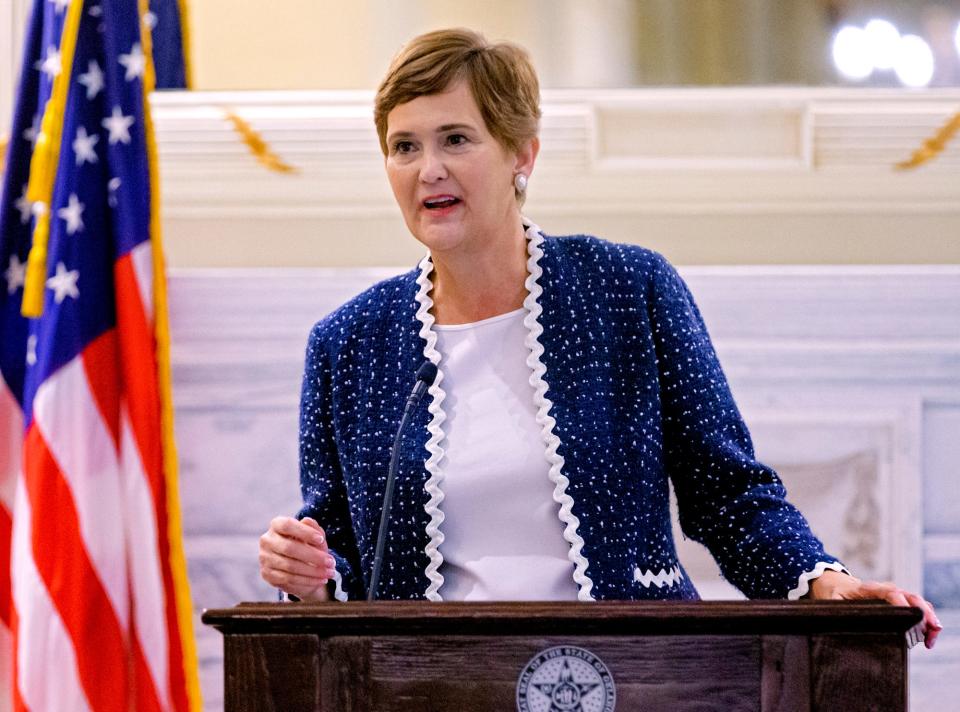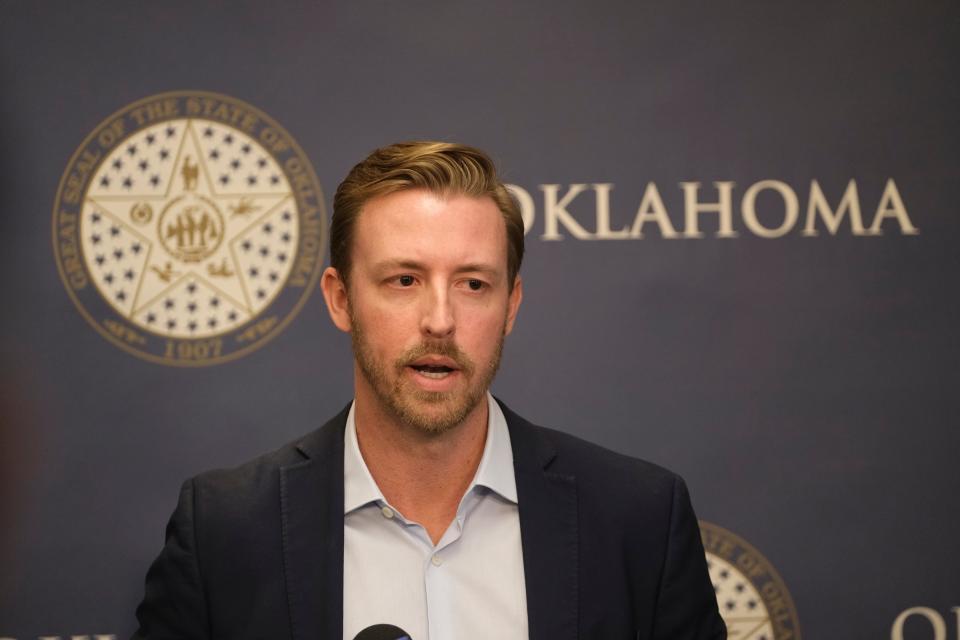In spite of Gov. Stitt's call for 'flat' budgets, education leaders are seeking more money

- Oops!Something went wrong.Please try again later.
- Oops!Something went wrong.Please try again later.
Leaders of state agencies connected with education spent more than two hours defending their budget requests to the Oklahoma Senate's education budget subcommittee on Wednesday and explaining why they'd asked for funding increases when Gov. Kevin Stitt has asked for flat spending.
The hearing was held as part of the Senate’s new budget transparency initiative announced earlier this year by Senate President Pro Tem Greg Treat, R-Oklahoma City. Executives of state agencies with educational missions appeared, including state schools Superintendent Ryan Walters, state higher education Chancellor Allison Garrett and CareerTech director Brent Haken.
As part of their testimony, all agency heads were asked two questions by the subcommittee chair, Sen. Adam Pugh — how much control did the governor have over selecting members of their agency’s governing board (the governor appoints all or a majority of them) and if they wanted to stick to their previously submitted budget requests or to resubmit those requests to abide by Stitt’s call for flat agency budgets.
Only one agency director — Dan Whitmarsh, the secretary of the Commissioners of the Land Office — opted for the latter option. Whitmarsh said there are “still some inefficiencies” in the office and “we just want to make sure we’re running our agency as efficiently as we can.”
One other agency, the Oklahoma School of Science and Mathematics, already had submitted a budget proposal for less state funding than it received last year. All of the others had asked for increases of various levels.
“You are seeing the Senate’s new, transparent budget plan in action,” Pugh said. “I have been empowered in my chairmanship to run these meetings as I see fit, and I am committed to doing these meetings in a public forum. As you saw today, we asked tough questions and want everything to be done in the open.”
Budget requests were submitted months ago, before Stitt's call for flat budgets
The agencies submitted their budget requests months ago — long before Stitt’s flat-budget call — and in the weeks before the current legislative session began, presented those requests and answered questions from lawmakers in committee meetings. During those presentations before the Senate education budget subcommittee, Pugh, R-Edmond, warned agency leaders they’d likely be called back to answer further questions. He made good on that promise Wednesday.
Under the Senate’s new budget process, subcommittees will do the heavy lifting on setting that body’s budget priorities. Sen. Roger Thompson, R-Okemah, the Senate's budget chairman, will give each subcommittee chairman a percentage of revenue to allocate. He said Thompson will set the percentage for each area of state government and senators will then vote in open meetings on what the budget for their agencies should look like.
Once the agency hearings with subcommittees are complete, Pugh will address the full Senate Appropriations Committee to advocate for the education budget subcommittee’s priorities. Pugh said Wednesday’s meeting was another step in the process.
“Government operates best when we can show where our priorities are, while agency leaders explain exactly where tax dollars are being spent,” Pugh said. “As a fiscal conservative, I believe Oklahomans need to know where and how taxpayer dollars are being spent.”

With one exception, no agencies make major changes to budget proposals during hearing
On Wednesday, other than the Commissioners of the Land Office, no agency leader had any substantive changes to their proposed budgets. Walters, Garrett and Haken — representing the three most prominent agencies ― received the most questions, particularly from Sen. Mary Boren, D-Norman, who continually asked agency heads if their budget requests represented the growth of government or an investment to serve the needs of Oklahomans.
Haken, who’s asked for a 26 percent funding increase for the next fiscal year, said CareerTech’s enrollment has grown by 9.5 percent this year, or about 3,000 students. But the agency still has a waiting list of about 7,400 people wanting to enroll. He said Stitt asked CareerTech to develop “a clear plan for growth” and that demand for the agency’s services is growing “more rapidly than we’ve ever seen in history.”

Garrett’s agency, the Oklahoma State Regents for Higher Education, asked for a 12.2 percent funding increase to $1.126 billion for the upcoming fiscal year. A priority for state regents is addressing what they say is a $1.5 billion backlog of deferred maintenance needs on the campuses of Oklahoma’s 25 state colleges and universities. They’ve asked for $200 million for those needs alone this year and hope the Legislature will make yearly allocations in the near future, as well as for campus security and cybersecurity, Garrett said.

Walters, as he has in previous budget hearings, said growing the state’s teacher bonus program — which has had issues in its initial rollout — remains a priority, as well as the expansion of a tutoring program across the state. He believes the tutoring program will help address student learning losses stemming from the COVID-19 pandemic, when schools across the state were forced into virtual learning for long stretches.
In a statement issued after the meeting, Boren noted the CareerTech waiting list as well as testimony by Jennifer McGrail, the executive director of the Oklahoma Center for the Advancement of Science and Technology, known as OCAST.
“Our state continues to actively recruit new businesses, employees, and their families to relocate to Oklahoma," she said. "We’re also working to address workforce shortages by increasing the numbers of higher education and CareerTech graduates, and spurring entrepreneurship in STEM businesses. We need more skilled workers, and yet CareerTech has 7,399 on the waiting list. This is an unmet demand that requires additional investment. Last year, OCAST was only able to fund 20 of 60 grant requests to grow innovative STEM businesses in Oklahoma. That’s 40 missed opportunities for innovation, job development and business growth.
“Flat budgets mean we are defunding growth. A business facing an uptick in demand would seize that opportunity by investing more, knowing that investment would pay dividends for years to come. More residents and more students result in increased demand, which is in our state’s best interest to meet. Funding education is not growing government – we’re growing Oklahomans, helping citizens and our state become more prosperous.”
This article originally appeared on Oklahoman: Oklahoma education leaders ask for more money, not a 'flat' budget

